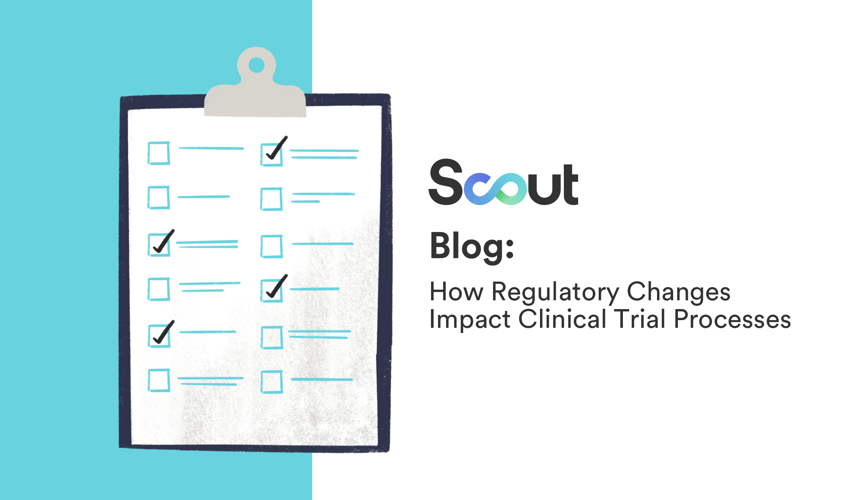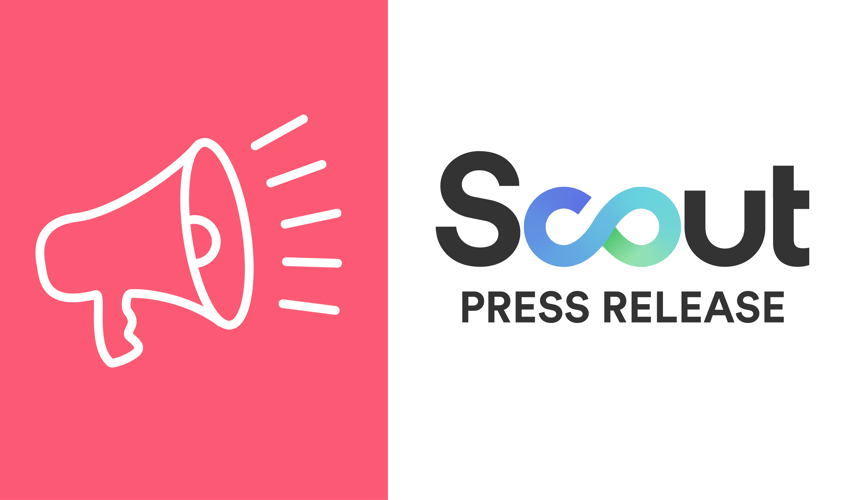
Running clinical trials in France isn’t for the faint-hearted. From navigating stringent regulations to overcoming cultural preferences, you’ll encounter hurdles that can derail even the most meticulously planned studies – which frankly have left many service providers struggling to establish a foothold in this market.
Since 2016, our Scout Clinical services have revolutionized patient services with innovative solutions for travel, logistics, and payments. Our adaptability, precision, and commitment to excellence allow us to thrive where others falter. But our expertise isn't confined to one country. With a presence spanning over 100 countries worldwide, our global reach and local expertise make us a trusted partner in the complex world of clinical trials.
Today, we’ll examine what sets France apart, explore why our manual reimbursement process is indispensable, and highlight how Scout’s innovative, adaptable solutions turn challenges into opportunities.
Understanding the Challenges in France
Conducting clinical trials in France is anything but straightforward. Let's explore the key obstacles that make this region particularly demanding.
Regulatory Hurdles
France's regulatory environment for clinical trials is among the most stringent in the world. The Agence Nationale de Sécurité du Médicament et des Produits de Santé (ANSM), the national competent authority, imposes extensive documentation requirements and rigorous standards aimed at ensuring patient safety and data integrity. Navigating this labyrinth of regulations necessitates meticulous planning and adherence to detailed protocols, which can significantly delay the initiation and execution of clinical trials.
For instance, obtaining approval involves multiple layers of review, including ethical committees and health authorities, each requiring comprehensive submissions. These approvals are often subject to prolonged wait times, adding months to the trial timeline. Furthermore, the need for exhaustive documentation—from patient consent forms to detailed study protocols—means that any oversight can lead to substantial delays or even rejections.
Healthcare System Constraints
The French healthcare system presents unique constraints that affect clinical trial operations. One significant challenge is the system's discouragement of patient recruitment by investigators who are not the patient's primary care provider. This restriction limits the pool of eligible participants and can slow down recruitment efforts considerably.
Additionally, the centralized nature of the French healthcare system means that integrating clinical trial activities with routine medical care involves navigating bureaucratic processes and getting approval from various stakeholders. This complexity can disrupt the smooth operation of clinical trials and require extra resources to handle administrative tasks.
Cultural Preferences
France has historically had some resistance to adopting digital records over traditional, paper-based methods. This cultural inclination significantly influences clinical trial processes. A preference for tangible documents impacts how consent forms are signed, data is recorded, and communications are conducted. The reliance on paper adds layers of complexity, requiring a blend of digital and manual processes to ensure compliance and smooth operations.
It can also affect the efficiency of clinical trials, as digital solutions often need to be supplemented or replaced by manual methods. For instance, patient enrollment forms, study documentation, and feedback mechanisms may need to be provided in hard copy to meet participant expectations and regulatory standards.
Past Incidents
The landscape of clinical trials in France has been profoundly shaped by past incidents, notably the phase I clinical trial disaster in 2016 in which several participants were hospitalized, and one died due to severe adverse reactions during a drug study. The French health authorities, along with the European Medicines Agency (EMA), undertook comprehensive reviews of clinical trial protocols. Stricter regulations were introduced to ensure higher safety standards, including more rigorous approval processes for new trials, enhanced monitoring of participants, and greater transparency in trial conduct.
These events have instilled a cautious approach among regulators, sponsors, and investigators, emphasizing the importance of rigorous safety protocols and comprehensive risk assessments. The aftermath also influences public perception, making patient recruitment more challenging as trust in clinical trials must be rebuilt.
By recognizing the various challenges—such as regulatory hurdles, healthcare system constraints, cultural preferences, and the lasting impact of past incidents—we can start to grasp the complexities of conducting clinical trials in France. However, challenges like our next example are exactly where Scout shines with an adaptable, innovative approach.
Why Manual Reimbursement is Necessary in France
Maintaining a manual reimbursement process in France is essential due to several key factors. It ensures adherence to stringent national regulations, safeguards sensitive patient data, accommodates all patients regardless of technological proficiency, and provides a reliable backup system.
Regulatory Compliance
Adherence to strict national laws and guidelines is crucial in France. The French healthcare system operates under stringent regulatory frameworks that ensure the safety, quality, and efficacy of healthcare services. Compliance with these regulations often necessitates manual processes which provide documented proof of adherence.
Data Protection and Privacy
Manual processes play a vital role in maintaining the secure handling of sensitive patient data. France's data protection laws, such as the General Data Protection Regulation (GDPR), impose rigorous requirements on data security. Article 32 of the GDPR specifies that personal data must be processed securely by implementing appropriate measures to protect against risks such as accidental or unlawful destruction, loss, alteration, unauthorized disclosure of, or access to personal data. Paper-based systems can sometimes offer more controlled access and a clear audit trail, reducing the risk of data breaches.
Patient Convenience and Accessibility
The inclusivity of manual options caters to varying levels of technological proficiency among patients. Not all patients have access to digital platforms or are comfortable using them. Manual reimbursement processes ensure that all patients, regardless of their technological skills, can easily navigate the system and receive their reimbursements.
Contingency Planning
Having a manual backup system ensures uninterrupted reimbursements even in the face of digital failures or cyber-attacks. Digital systems can be vulnerable to outages and security breaches. A reliable manual process serves as a contingency plan, guaranteeing that reimbursements continue smoothly without disruption.
Scout’s Approach in France
Scout's commitment to innovation and adaptability has enabled it to successfully navigate the complex landscape of the French healthcare system. By tailoring its services to meet local demands, Scout ensures efficient and compliant operations. We can break this approach down into three components:
1. Innovative Solutions
Scout employs a range of tailored services designed to meet the specific needs of the French healthcare system, including a manual reimbursement process. By providing pre-addressed, postage-paid envelopes and clear, step-by-step instructions for patients, Scout ensures that the reimbursement process is both straightforward and user-friendly. This approach not only simplifies the procedure for patients but also helps to maintain compliance with France's stringent regulatory requirements.
2. Successful Implementation
Scout has successfully implemented its innovative solutions across various healthcare settings. Although specific case studies in France are proprietary, the effectiveness of Scout’s approach is evident from its wide adoption and positive feedback from clients. The combination of manual processes, detailed documentation, and patient support has consistently led to streamlined operations and improved patient experiences.
3. Global Expertise
With experience in over 100 countries, Scout has demonstrated exceptional adaptability and expertise in navigating diverse healthcare landscapes. In France, Scout's comprehensive understanding of local regulations, cultural norms, and patient needs has made it a standout case study. By leveraging its global knowledge and applying it specifically to the French market, Scout has set a benchmark for efficient and compliant reimbursement processes, ensuring seamless operations and high levels of patient trust.
Partnering With Scout Locally & Globally
Scout's ability to scale and adapt solutions globally while meeting local needs sets it apart in the healthcare industry. The company's extensive experience across over 100 countries enables it to navigate diverse regulatory landscapes with ease. Scout's country-specific services have been crucial in addressing the unique needs of each market.
Compliance and Efficiency
Ensuring regulatory compliance and operational efficiency across diverse regions is at the core of Scout’s operations. By leveraging its global knowledge and applying region-specific insights, Scout minimizes the risk of non-compliance and enhances the overall efficiency of healthcare processes. This meticulous approach not only meets but often exceeds local regulatory standards, ensuring smooth and effective operations.
Patient-Centric Solutions
At the heart of Scout’s services is a commitment to patient-centric approaches, which are crucial for achieving high participation and satisfaction rates. By understanding and addressing the specific needs and preferences of patients in each region, Scout ensures that its services are accessible, user-friendly, and effective. This focus on the patient experience leads to higher engagement and better health outcomes, ultimately benefiting both patients and healthcare providers.
| If you’re running into operational obstacles in France or anywhere else in the world, click here to let us know! The Scout Clinical team is your partner in developing efficient, people-first solutions to patient travel, logistics, and payment. |
Conclusion
Scout’s manual reimbursement process, tailored to meet France's specific regulatory requirements, is just one testament to our adaptable approach. By offering pre-addressed, postage-paid envelopes that simplify patient reimbursements, we ensure compliance while enhancing convenience. This dual strategy—integrating advanced digital solutions with necessary manual processes—sets us apart in a competitive field.
Conducting clinical trials in France takes a nuanced understanding of local regulations, cultural norms, and patient needs. Scout's unique, adaptable approach has consistently enabled successful operations both in France and around the globe. By combining global reach with local expertise, Scout ensures compliance, efficiency, and high patient satisfaction. We don’t just operate in France; we excel, setting new standards in patient service delivery.
We’ll be the first to admit – it’s no easy feat. Many of our top competitors have discovered as much. But when it comes to answering the question of whether Scout works in France, the answer’s a resounding oui.
.png?width=1387&height=800&name=Scout_Logo_RGB%20(1).png)


